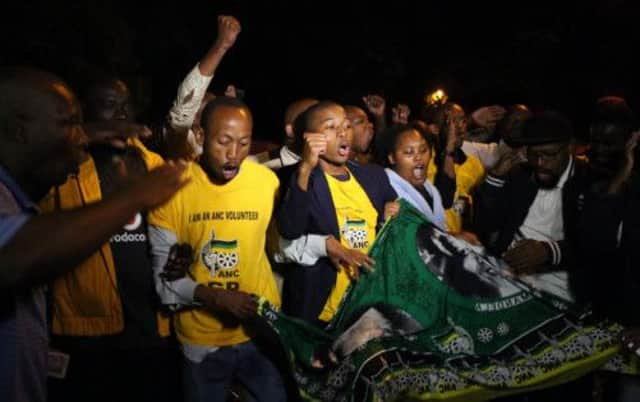Nelson Mandela: South Africa without Madiba


Nelson Mandela’s death is as momentous an event in the modern history of South Africa as the day he came to power as his country’s first black post-apartheid State President on 10 May 1994.
Mandela, both in power and since his retirement from politics, has been the moral glue that held his country together – divided as it is between black and white, rich and poor, and between peoples of many different cultural origins.
Advertisement
Hide AdAdvertisement
Hide AdMandela was no saint, but nevertheless he proved himself capable of outstanding courage, kind-hearted generosity and, at critical points in his country’s history, inventive and virtuous acts that prevented his country from tipping into all-out civil and racial war.
Even in illness in his later years he was respected or revered by most South Africans.
Once the mourning is over – and it will be prolonged and intense – South Africa will be a less stable place. Since he stepped down voluntarily from power in 1999, his successors have grown more and more corrupt while sheltering under the shield of his moral authority. Already there is growing public anger with the greed and incompetence of current South African State President Jacob Zuma: the patience of many impoverished black Africans is remarkable, but this could be a tipping point.
A new black middle class, nicknamed the “black diamonds”, has emerged since Mandela and his African National Congress (ANC) won power. But for the majority of poor blacks in the sprawling townships spread across the land post-apartheid change was and remains pitiably slow. For them there are no fancy cars and bling. Youth unemployment exceeds 50 percent. Poverty and crime remain endemic, and the charlatanism that marked the ANC’s approach to HIV/AIDS once Mandela stood down from power has resulted in a thousand South Africans a day dying from the virus while a similar number become infected daily.
For the past twenty years the fissures in South African society have not been responsibly addressed as the Rainbow Nation basked in the international acclaim that Mandela’s standing and authority lent.
South Africa now has to stand on its own without its father. The ruling ANC will now come under the most intense scrutiny and accountability. The conclusions and outcomes will not be pretty.
A more intense lens will now be turned on the aftermath of the Marikana shootings in which police shot dead 34 striking miners last year. The killings shocked the nation because they were so reminiscent of the apartheid-era Sharpeville Massacre of 1960 when white police shot dead 69 black Africans protesting the draconian racial Pass Laws. The Marikana Inquiry has been drifting on for months with demands from ordinary people that the police be brought to justice while the state resists their calls.
But, if anything, the sad tawdriness of South Africa today actually makes Mandela’s example shine more vibrantly than ever because it is possible to see the distance between the magnificent example he set and the rather sordid and disillusioning degeneracy of the current ANC government.
Advertisement
Hide AdAdvertisement
Hide AdAt the time of his greatest influence in the 1990s, Mandela was not a holy man pleading for peace. He was a warrior calling for reconciliation. Having resisted his oppressors, he had the standing to engage them. He was modern South Africa’s First Citizen who honoured constitutional procedures, respected minority rights and instilled democratic habits.
Given its history, South Africa is never far from the abyss. The best hope now is that somehow the country’s citizens will continue to honour his example now that he is gone.
SEE ALSO